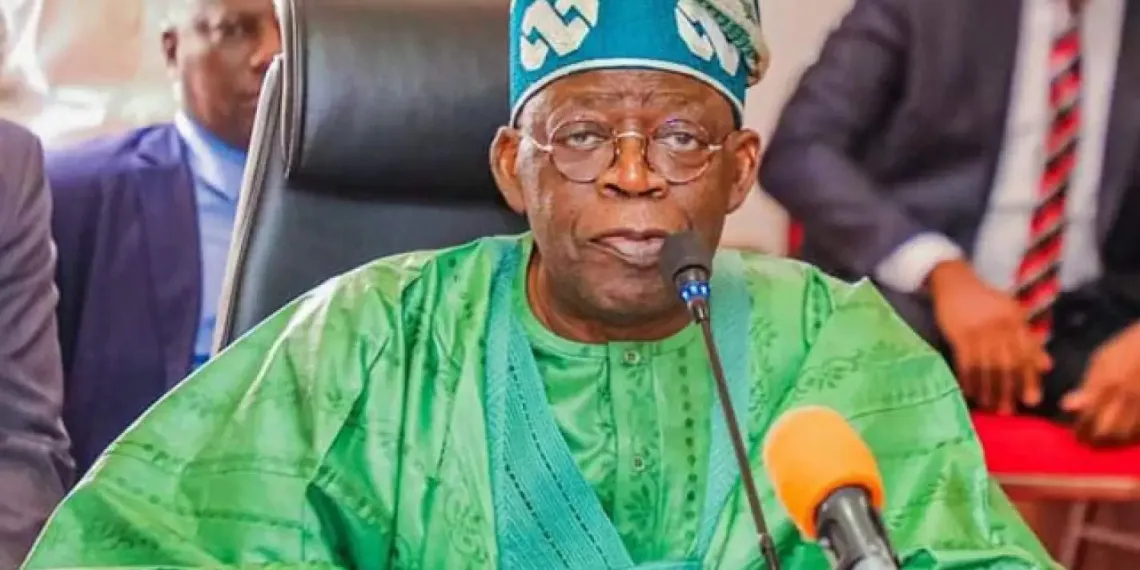President Bola Tinubu has urged West African leaders to move beyond fragmentation and missed opportunities, working towards deeper regional integration, collaboration, and shared prosperity.
Mr Tinubu, while speaking at the just concluded inaugural West Africa Economic Summit (WAES) in Abuja, emphasised that West Africa is one of the last great frontiers of economic growth, but opportunity alone does not guarantee transformation.
“Opportunity is not destiny. We must earn it through vision, integration, policy coherence, collaboration, and capital alignment. Intra-regional trade remains under 10 per cent, a challenge we can no longer afford to ignore. The low trade is not due to a failure of will but a coordination failure. The global economy will not wait for West Africa to get its act together, and neither should we.
“Rather than competing in isolation or relying on external partners, we must strengthen our regional value chains, invest in infrastructure, and coordinate our policies. Our region’s greatest asset is its youthful population. However, this demographic promise can quickly become a liability if not matched by investments in education, digital infrastructure, innovation, and productive enterprise,” Mr Tinubu said.
For example, he said, Nigeria invests in skills development, digital connectivity, and youth empowerment, noting that no one country can do this alone.
“Our prosperity depends on regional supply chains, energy networks, and data frameworks. We must design them together or they will collapse separately. From the Lagos-Abidjan Highway and West African Power Pool to digital and creative industry initiatives, our joint projects demonstrate what is possible when we work together. But we must do more. We must move from declarations to concrete deals; from policy frameworks to practical implementation,” he said.
Nigerians need credible journalism. Help us report it.
Support journalism driven by facts, created by Nigerians for Nigerians. Our thorough, researched reporting relies on the support of readers like you.
Help us maintain free and accessible news for all with a small donation.
Every contribution guarantees that we can keep delivering important stories —no paywalls, just quality journalism.
He further emphasised the need for West Africa to process its rare minerals locally, rather than just exporting raw resources, advocating for regional manufacturing and value addition.
“The era of pit to port must end. We must turn our mineral wealth into domestic economic value jobs, technology, and manufacturing. The fundamental transformation will not come solely from the government but from unleashing our people’s entrepreneurial spirit. Governments must provide the right environment, law, order, and market-friendly policies while the private sector drives growth.
“Our task is to find new and effective ways to invest in our collective future, improve the business climate, and create opportunities for our youth and women,” he added.
Also speaking, the Minister of Foreign Affairs, Yusuf Tuggar, noted that only 8.6 per cent of West Africa’s trade in 2024 remains within the region, with the majority of exports going to partners outside the continent.
“In 2024, West Africa exported goods valued at over $166 billion. Yet only 8.6 percent of that trade remained within our borders. Imports follow the same pattern ,heavily tilted toward partners outside the continent. Machinery and manufactured goods from China, India, the United States, and the European Union dominate our import flows, while we continue to export unprocessed raw materials,”he said.
He added that this trajectory is untenable and the issue is not just capacity, but orientation.
“As governments, as states and the region, we need to do more to make it easy to bring that activity within the formal sector, to bring with it the economies of scale and other efficiencies that will accelerate growth and help our entrepreneurs,” he said.
In her address, Director-General/Chief Executive Officer, National Identity Management Commission (NIMC), Abisoye Coker-Odusote emphasised the need for a unified digital identity system in West Africa to drive regional economic integration and growth.
She noted that a unified digital identity system would enable citizens to move across borders with a recognised and verifiable identity, facilitating trade, access to services, and participation in regional growth.
“Digital identity strengthens trade by making the informal visible, reducing fraud, and enabling access to financial services, logistics, and government programs across national boundaries,” she said.
Across West Africa, she said identity management systems are at different stages of development.
According to her, harmonising digital identity systems across West Africa is more than a bureaucratic necessity, it is a strategic enabler of regional economic integration.
She added that one of the major obstacles to intra-regional trade is the difficulty individuals and small businesses face in verifying their identity across borders, leading to transactional friction, limited access to formal financial services, and lack of trust in cross-border operations.
“A unified, interoperable digital identity infrastructure will serve as the foundation upon which seamless trade, payment interoperability, and cross-border services can be built,” she said.
At Premium Times, we firmly believe in the importance of high-quality journalism. Recognizing that not everyone can afford costly news subscriptions, we are dedicated to delivering meticulously researched, fact-checked news that remains freely accessible to all.
Whether you turn to Premium Times for daily updates, in-depth investigations into pressing national issues, or entertaining trending stories, we value your readership.
It’s essential to acknowledge that news production incurs expenses, and we take pride in never placing our stories behind a prohibitive paywall.

